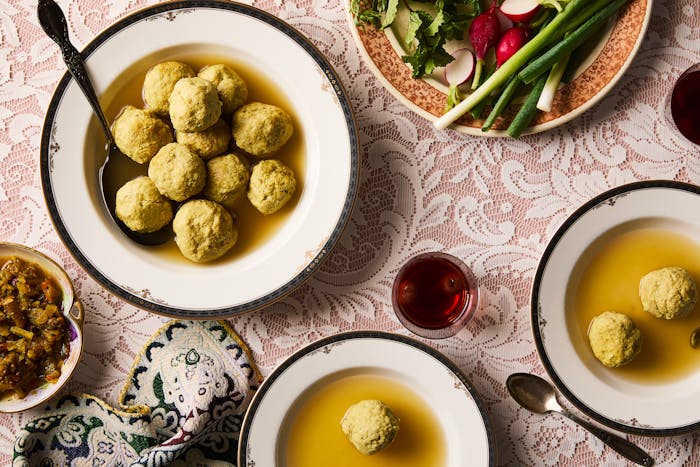Shared by Nilou and Chantal Ghalchi


Shabbat dinners at the Ghalchi household start with bowls of gondi, Persian dumplings made with chickpea flour and poultry. The dumplings are ubiquitous in Persian-Jewish households, but “go to 10 different houses and you’ll taste 10 different gondis,” says matriarch Nilou Ghalchi. She makes hers with ground coriander, cumin, and turkey. The gondi are served as an appetizer, alongside bowls of torshi, Iranian pickles, plates of fresh herbs and shot glasses full of Nilou’s homemade sour cherry vodka.
Read more about Nilou Ghalchi’s family story in "Rebuilding a Lost Persian World in a Sun-Filled Long Island Kitchen" and get her recipes for karafs khoresht (Persian beef, celery and herb stew) and Persian halva with rosewater and saffron.
Add the onion, salt, pepper, coriander, cumin, turmeric and oil to the bowl of a food processor. Blend together until finely chopped.
In a medium bowl, combine the onion mixture with the turkey and chickpea flour. Use your hand to mix it all together while slowly adding the water. The dough should feel playdough-like, and your fingers should leave a mark on the dough if pressed.
Add the ground cardamom and mix again. Let the mixture sit, covered, in the fridge for 1-2 hours.
Bring water to a boil in a large pot. Add the chicken consomme and whole cardamom pods. Shape the gondi into small, 1½” balls (use a small bowl of water to dip your fingertips into and help you shape, if needed) and gently drop them in the pot, one at a time, while the water remains at a boil.
Once all the gondi have been added to the pot, lower the flame to a very low heat and cook the gondi, simmering, for at least an hour, until ready to eat. Serve ladled with broth the gondi were cooked in, so the gondi don’t dry out.